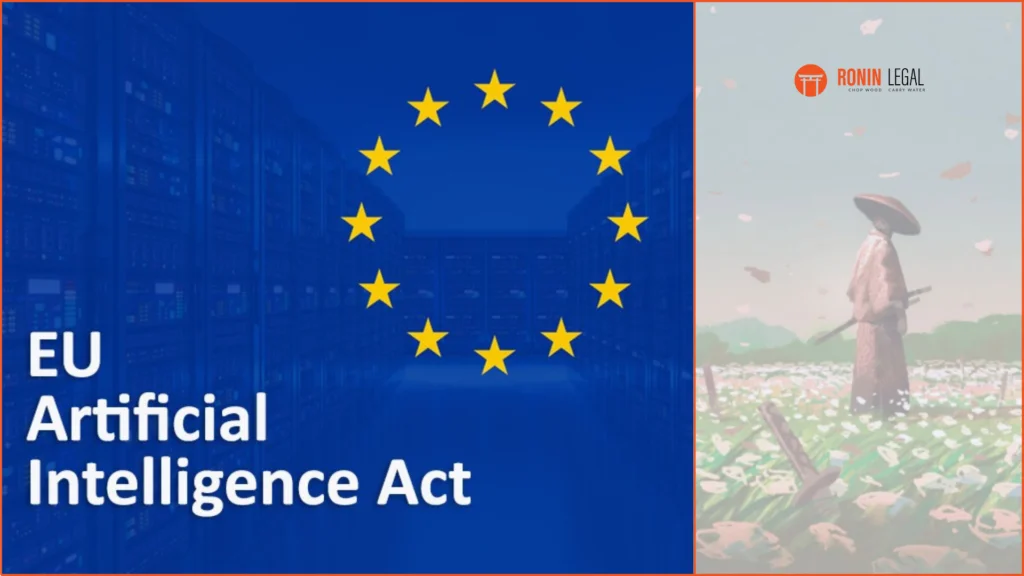Artificial Intelligence (AI) is transforming industries worldwide, but its impact is most pronounced in healthcare. Recent data shows that healthcare continues to lead all industries in AI adoption.
According to the 2025 Stanford AI Index, 42% of healthcare organizations globally reported regular use of AI in 2024, a figure projected to rise to 45% by the end of 2025.
The scale of this adoption is reflected in the market’s explosive growth. Global investment in healthcare AI reached $15 billion in 2024, outpacing sectors such as finance, retail, and manufacturing.
These figures underscore why robust regulatory frameworks are especially critical for healthcare, where patient safety and public trust are paramount.
The EU AI Act: A Pioneering Legal Framework
The EU has taken a pioneering step with the introduction of the EU AI Act (“Act”). This legislation became the first formalised legal framework for AI on August 1, 2024.
This transformative Act underscores the EU’s commitment to fostering safe, trustworthy, and innovation-friendly AI across all sectors.
Healthcare As a High-Risk Sector
The Act classifies healthcare as a high-risk sector. Therefore, AI systems must align with essential standards around risk management, data quality, transparency, human oversight, and cybersecurity.
All these technologies face intense assessments. For example, AI-assisted diagnostics and patient monitoring systems go through rigorous evaluation. As a result, these assessments guarantee the protection of the health, safety, and rights of individuals.
Furthermore, the Act harmonises the standards that will pave a safe passage for healthcare AI providers. This approach helps providers navigate the regulatory labyrinth with confidence. In addition, it reduces the compliance burdens while maintaining safety and ethical integrity.
Requirements For High-Risk Ai System Providers
High-risk AI system providers must implement comprehensive measures to ensure safety and ethical use. These requirements are outlined in Articles 8-17 of the Act.
First, providers must establish a robust risk management system. Second, they must conduct rigorous data governance practices. Third, they must maintain detailed technical documentation.
Additionally, they must design systems to enable record-keeping, user instructions, and human oversight. Moreover, systems must achieve high levels of accuracy, robustness, and cybersecurity. Finally, a robust quality management system is essential to ensure ongoing compliance with the AI Act.
Recent Developments in Healthcare AI Standards
Recently on October 24, 2024, the Joint Research Centre of the European Commission unveiled a policy brief. This brief focuses on ensuring the safe and ethical development of AI in the EU through standardised practices.
Key Requirements Starting August 2026
This policy brief outlines the key requirements for high-risk AI systems. The EU AI Act specifies these requirements. Furthermore, the brief explains the role of technical standards in defining how to meet them in practice.
Starting from August 2026, these systems must adhere to strict standards. These standards cover risk management, data quality, transparency, human oversight, and cybersecurity. To ensure compliance, providers must establish a robust quality management system. In addition, they must undergo rigorous conformity assessments before launching their AI products.
Development of Technical Standards
The EU AI Act outlines the essential safety standards for high-risk AI systems. To ensure compliance, technical standards are being developed by European organizations. These standards provide practical guidelines and best practices for meeting the legal requirements.
Once assessed and published in the Official Journal of the EU, standards will confer providers of high-risk AI systems with presumption of conformity. As a result, this simplifies compliance requirements with the relevant legal obligations.
Collaborative Standard Development Process
AI standards are developed through a collaborative process. This process involves various stakeholders, including small and medium-sized enterprises and societal groups.
While creating new standards from scratch can be time-consuming, the EU can leverage existing international standards. For example, the EU can use standards from organisations like ISO and IEC to expedite the process.
Key Focus Areas in AI Standards
1. Risk Management
AI providers must actively identify and mitigate risks to health, safety, and fundamental rights. These measures must cover the entire AI system lifecycle. Furthermore, these measures must be demonstrably effective, with thorough testing and evaluation protocols.
2. Data Governance and Quality
High standards of data quality are essential to prevent bias and ensure accuracy. This is particularly important in AI-driven healthcare solutions. The Act emphasizes robust data governance to manage data throughout an AI system’s lifecycle. This emphasis is especially critical in data-intensive fields like machine learning.
3. Transparency
Transparency is critical, with requirements for clear information on AI system functionality, limitations, and risks. This transparency enables users and healthcare providers to make informed, confident decisions on AI utilisation. Additionally, Healthcare Attorneys play an essential role in helping organisations interpret legal standards, navigate compliance challenges, and ensure that AI applications align with evolving regulatory expectations in the healthcare sector.
4. Record Keeping
AI providers must maintain accurate records on AI operations and performance. These records are essential for continuous risk identification and mitigation.
5. Human Oversight
Human oversight measures are a cornerstone of the Act. These measures ensure human intervention is possible when necessary. This is particularly vital in healthcare because it allows healthcare professionals to intervene in critical decisions.
6. Accuracy
Standards specify precise accuracy metrics. These metrics set thresholds for acceptable performance and require reliable, consistent measurement and reporting. This requirement is vital in diagnostics and treatment recommendations.
7. Cybersecurity
With the sensitive nature of healthcare data, robust cybersecurity is essential. The Act mandates security measures to guard AI systems against cyber threats. As a result, patient data and operational integrity are protected.
8. Robustness
AI systems in healthcare must be resilient to errors, faults, and inconsistencies. This resilience prevents adverse effects. Specific measures ensure that the AI system performs safely, even under challenging conditions.
9. Quality Management
Effective quality management systems ensure ongoing compliance with the Act. These systems support healthcare AI systems throughout their lifecycle.
10. Conformity Assessment
A structured conformity assessment process will verify that AI systems meet all legal requirements. This verification happens before entering the healthcare market. Therefore, it sets a trusted benchmark for safe deployment.
Benefits for Healthcare Innovation
The EU AI Act marks a step forward by allowing healthcare providers and developers to build AI solutions that safeguard patient welfare. Furthermore, it promotes innovation across borders while being accountable, transparent, and of high quality.
The EU AI Act has given a solid foundation to trust future-proof AI applications in healthcare and beyond.
Road To Implementation
Standards for high-risk AI systems will come into full effect in August 2026. Significant groundwork is underway to develop these standards.
The European Commission has collaborated with CEN-CENELEC to develop harmonised standards. These standards draw upon existing global frameworks and respond to the fast pace of change in AI.
For healthcare, such standards will cover the entire lifecycle of AI systems. This coverage spans from design through deployment and continuous monitoring. As a result, applications of AI are maintained on the highest standards of safety and efficacy.
What This Means for Healthcare Innovators?
The EU AI Act establishes a level playing field by creating a uniform regulatory environment. The more streamlined standards make integration of new AI solutions from other borders across the EU easier.
In addition, these standards help in smoother compliance processes and increase patient as well as stakeholder trust. The healthcare sector stands at the forefront of realising the benefits of the EU AI Act’s harmonised standards.
With the establishment of clear, actionable guidelines, healthcare providers and developers can leverage AI more effectively. Therefore, they can safeguard patient care and set a precedent for ethical AI use across other critical domains.
Authors: Roshni Rajani, Shantanu Mukherjee














































